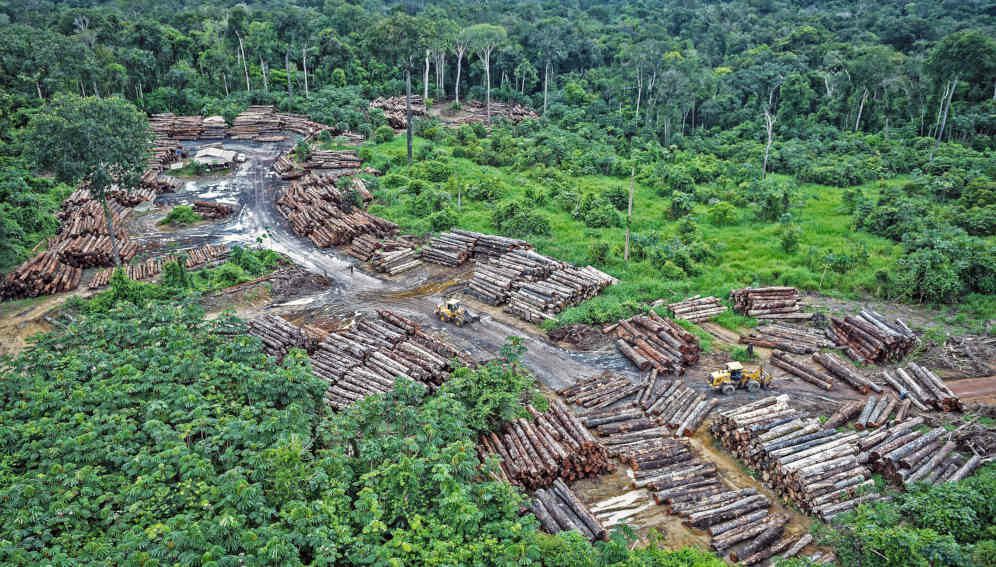08/11/21
Doubt grows over COP26 forest pledge

By: Aleida Rueda
Send to a friend
The details you provide on this page will not be used to send unsolicited email, and will not be sold to a 3rd party. See privacy policy.
[GLASGOW] Activists and civil society groups have raised wide-ranging doubts and concerns about a pledge to end deforestation by 2030, announced with great fanfare during the COP26 climate conference in Glasgow.
More than 120 countries committed on Tuesday (2 November) to halt and mitigate deforestation by 2030, as part of the Glasgow Leaders’ Declaration on Forests and Land Use.
The announcement was made by UK Prime Minister, Boris Johnson, accompanied by the presidents of Indonesia, Joko Widodo, and of Colombia, Iván Duque.
According to the leaders, the Declaration on Forests and Land Use is historic due to the number and diversity of countries that have signed it so far, which represent more than 86 per cent of the world’s forests.
Under the deal, more than US$19 billion has been pledged, of which 12 billion has come from 12 donor countries, while the rest will come from private initiatives and philanthropic organizations.
Yet, despite the celebratory tone, the response from some specialists and activists, especially on social networks, has been highly critical.
They point to the overwhelming failure of similar agreements in the past and say practically no country has explained how they will meet the goal.
Greenpeace UK said the causes of deforestation have not been addressed.
“It’s simple. World leaders can’t commit to ‘end deforestation by 2030’ if we don’t cut down one of the main drivers of #deforestation: meat and dairy consumption,” the organization Tweeted.
It’s simple.
World leaders can’t commit to ‘end deforestation by 2030’ if we don’t cut down one of the main drivers of #deforestation: meat and dairy consumption.#COP26 #ForestDeal pic.twitter.com/UrBJu6VhIX
— Greenpeace UK (@GreenpeaceUK) November 2, 2021
Louis Verchot, head of research for landscape restoration for the Bioversity International Alliance, told SciDev.Net that the agreement lacked any concrete methods of reaching the 2030 goal, just like a similar deal agreed in 2014.
“We had the same problem with an agreement back in 2014, in New York, in which many countries and many representatives of the private sector agreed to reduce and eliminate deforestation.
“There are the goals but not the procedures to achieve it.”
Activists also say there are few details on how the progress of each country will be monitored, or how to sanction them if they do not comply.
“The Glasgow agreement on forests needs transparent targets, with external verification to ensure genuine progress,” Steve Trent, CEO and co-founder of the Environmental Justice Foundation, said at COP26.
Indigenous people
The declaration also includes US$1.7 billion towards promoting property rights over forests for indigenous groups and rural communities who have proven to be the ones who know best how to protect these ecosystems.
Torbjorn Gjefsen, from Rainforest Foundation Norway, an organization that has monitored how much international funding reaches indigenous organisations, said this agreement is a good sign as it represents more direct funds —without intermediaries— to these communities.
“This could be extremely efficient because what we have seen in different research is that forest management by indigenous groups is very efficient,” Gjefsen told SciDev.Net at COP26.
“This agreement can be significant, but only if the resources are spent in the correct way.”
Marcos Avilquis Campos, an indigenous leader from the northeast of Brazil, present at COP26, told SciDev.Net: “If there is a climate crisis, if there is lack of water (…) it is because the decisions have been based solely on politics.
“Much more is needed than financing; a global policy is needed, without false solutions and with the participation of indigenous peoples.”
This piece was produced by SciDev.Net’s Latin America desk.













